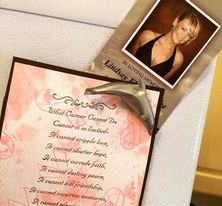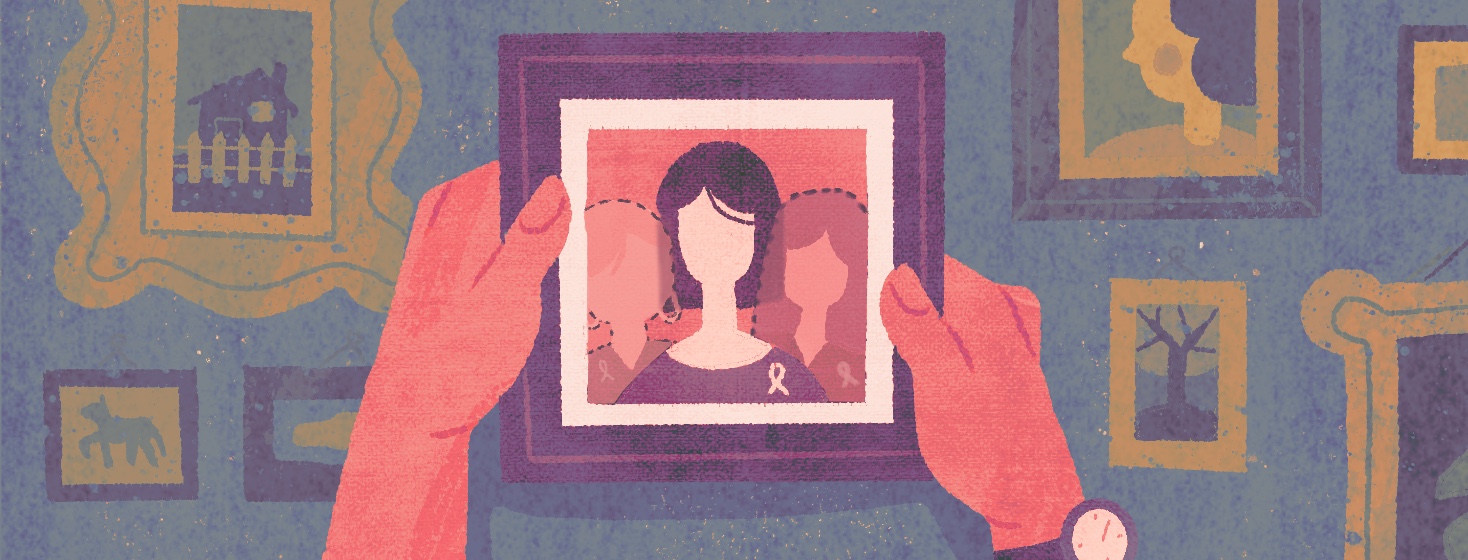I'm the Only One Left: Living with MBC Survivor's Guilt
I walk past her face every morning. Over the past years, she has gained a few friends next to her. Roberta, Laura, Adrienne, Berta - they surround Lindsay. But Lindsay is front and center. Her beautifully framed face, vibrant blond hair, and gorgeous smile greet me on my fridge.I love a refrigerator full of magnets, notes, drawings, awards, and pictures. It is also where I keep the funeral cards of all the local friends that have died from metastatic breast cancer. I miss them all, but I miss Linds the most.

Diagnosed with de novo metastatic breast cancer
When I was first diagnosed at 28 with de novo metastatic breast cancer, I met Lindsay at our cancer center. I secretly watched for her those first few months because we were the youngest two at the center. I craved connection with other local young metastatic patients. I felt so alone like no one understood me - but Lindsay did.
Slipping away
I watched Lindsay slowly slip away. And then I watched Berta. I held her hand as she laid there dying, crying, telling her I would always love her. Adrienne was younger than I was and had a one-year-old when she passed. One day Laura was no evidence of disease, and within months, she was gone. Roberta and I vacationed together in August, and in November, she was gone too. My core group, my "OG's," or "The Originals", as we called ourselves - they were all gone, and I watched them all die.
What is survivor's guilt?
Survivor's guilt crept in like a long dark winter night. Darkness surrounded me, and I could not find the light. Survivor's guilt is a form of Post-Traumatic Stress Syndrome (PTSD). It refers to the psychological condition of someone who witnessed or was involved in a traumatic event that killed friends, family members, or even strangers but left them somewhat unscathed1. The debilitating emotional scars impact this survivor from witnessing the tragedy. My emotional scars outweigh any physical scar I have from cancer.
Using the word survivor in the metastatic setting does not seem right by any account, but I am here, and they are not. I feel guilty for that. They left behind families - husbands, partners, mothers, fathers, friends, and kids. I want to know why I am here, and they are not.
What could I have done differently to help them? Am I next? What will happen to my family? All these questions swirl daily in my brain like a survivor guilt soup swashing around in there.
Symptoms of survivor's guilt
These are some of the symptoms of survivor's guilt. Although symptoms vary person to person, according to the Mental Health Center, there are many other manifestations of this guilt, such as1:
- Obsessive overanalysis of their actions during the event
- Mood swings and angry outbursts
- Feelings of helplessness
- Social problems or isolation
- Suicidal thoughts
- Trouble sleeping
- Lack of motivation and depression
- Physical symptoms such as headache, stomachache, etc.
- Flashbacks
Finding treatment for grief
I cannot say I have accepted their deaths. I acknowledge they are gone from the same disease I have. I cope with the fact that I watched them all slip away. Survivor's guilt is a process. I have taken many steps to be able to live with this daily guilt.
I needed to protect myself - mentally and emotionally for the sake of not only myself but my husband, my children, and my friends. I would be doing an injustice to those friends I have lost, wallowing in my grief for them and not trying to live life.
Finding treatment has been an essential part of my struggle through this grief. I found a therapist who specialized in tragedy. The tools I learned in our sessions help me deal with this guilt as well as new losses. I also started on an anti-depressant that greatly helps regulate my unbalanced emotions.
I talk about my friends, too. I talk about them to others, their family, and our mutual breast cancer friends - talking about them frees my soul from the shackles of that guilt. I can recognize when I am starting to get back to that dark place in my mind. I take the necessary steps now not to delay finding help to cope. I know I am not the only person with MBC to have guilt, and it is essential to know that we are never alone with these thoughts and feelings.

Join the conversation